|
|
This topic comprises 2 pages: 1 2
|
|
Author
|
Topic: Texas May Have Executed Innocent Man
|
Steve Kraus
Film God

Posts: 4094
From: Chicago, IL, USA
Registered: May 2000
|
 posted 12-12-2004 10:21 PM
posted 12-12-2004 10:21 PM



Texas man executed on disproved forensics
Fire that killed his 3 children could have been accidental
By Steve Mills and Maurice Possley
Chicago Tribune staff reporters
December 9, 2004
CORSICANA, Texas -- Strapped to a gurney in Texas' death chamber earlier this year, just moments from his execution for setting a fire that killed his three daughters, Cameron Todd Willingham declared his innocence one last time.
"I am an innocent man, convicted of a crime I did not commit," Willingham said angrily. "I have been persecuted for 12 years for something I did not do."
While Texas authorities dismissed his protests, a Tribune investigation of his case shows that Willingham was prosecuted and convicted based primarily on arson theories that have since been repudiated by scientific advances. According to four fire experts consulted by the Tribune, the original investigation was flawed and it is even possible the fire was accidental.
Before Willingham died by lethal injection on Feb. 17, Texas judges and Gov. Rick Perry turned aside a report from a prominent fire scientist questioning the conviction.
The author of the report, Gerald Hurst, reviewed additional documents, trial testimony and an hourlong videotape of the aftermath of the fire scene at the Tribune's request last month. Three other fire investigators--private consultants John Lentini and John DeHaan and Louisiana fire chief Kendall Ryland--also examined the materials for the newspaper.
"There's nothing to suggest to any reasonable arson investigator that this was an arson fire," said Hurst, a Cambridge University-educated chemist who has investigated scores of fires in his career. "It was just a fire."
Ryland, chief of the Effie Fire Department and a former fire instructor at Louisiana State University, said that, in his workshop, he tried to re-create the conditions the original fire investigators described.
When he could not, he said, it "made me sick to think this guy was executed based on this investigation. ... They executed this guy and they've just got no idea--at least not scientifically--if he set the fire, or if the fire was even intentionally set."
Even Edward Cheever, one of the state deputy fire marshals who had assisted in the original investigation of the 1991 fire, acknowledged that Hurst's criticism was valid.
"At the time of the Corsicana fire, we were still testifying to things that aren't accurate today," he said. "They were true then, but they aren't now.
"Hurst," he added, "was pretty much right on. ... We know now not to make those same assumptions."
A Tribune investigation of forensic science this year found that many of the pillars of arson investigation that were commonly believed for many years have been disproved by rigorous scientific scrutiny.
Willingham was charged after fire investigators concluded an accelerant had been used to set three separate fires inside the wood-frame, one-story home. Their findings were based on what they described as more than 20 indicators of arson.
Among them: "crazed glass," the intricate, weblike cracks through glass. For years arson investigators believed it was a clear indication that an accelerant had been used to fuel a fire that became exceedingly hot. Now, analysts have established that it is created when hot glass is sprayed with water, as when the fire is put out. It was just such evidence that helped convict Willingham.
Just as Hurst and other consultants dismissed the "crazed glass," they also said other so-called indicators--floor burn patterns and the charring of wood under the aluminum threshold--were just as unreliable.
The experts said evidence indicated the fire had advanced to flashover, a phenomenon that occurs when a fire gets so hot that gas builds up and causes an explosion. After flashover, "it becomes impossible to visually identify accelerant patterns," Hurst reported.
He also said the original finding that charring of wood was due to an accelerant under the threshold "is clearly impossible. Liquid accelerants can no more burn under an aluminum threshold than grease can burn in a skillet, even with a loose-fitting lid."
Prosecutors, though, point to other evidence against Willingham presented at his trial: a jailhouse informant who claimed Willingham confessed to him and stands by his testimony, and witnesses who said Willingham did not try hard enough to save his children.
Kathy Walt, a spokeswoman for the Texas governor, said Perry carefully considered "all of the factors" in Willingham's case before deciding against a stay.
Navarro County Judge John Jackson, who as the first assistant district attorney prosecuted Willingham, said that while the experts' review raises some "issues," he has no doubt that Willingham was guilty.
"Does it give me pause? No it does not. I have no reservations."
But some of the jurors who convicted Willingham and sentenced him to death were troubled when shown or told of the new case review.
"Did anybody know about this prior to his execution?" Dorinda Brokofsky asked. "Now I will have to live with this for the rest of my life. Maybe this man was innocent."
A groundbreaking document in fire investigation, the National Fire Protection Association's NFPA 921, was published on Feb. 10, 1992, less than two months after the fatal fire at the Willingham house.
Filled with the new revelations about fire science, NFPA 921 was developed by 30 fire experts, including Lentini and DeHaan, and was written as a guideline for fire investigators. It is considered the standard on fire investigation and is a key reference text for the Texas fire marshal's office. Some investigators, however, have refused to acknowledge it, preferring to stick to the old ways.
The scientific advances played a role in the exoneration of another Texas Death Row inmate, Ernest Willis, earlier this year.
In Pecos County, in West Texas, District Atty. Ori White had to decide whether to retry Willis, who had been convicted of setting a fire that killed two women and had spent 17 years on Death Row. Willis had gotten a new trial on unrelated legal issues in the case.
Before making his decision, White asked Hurst to review the fire evidence. The prosecutor also asked Ryland to conduct an independent review.
Hurst concluded there was no evidence of arson, that the fire most likely was accidental. Ryland concurred. White then dropped the case against Willis and Willis walked free. It was the 12th time Hurst's work had led to dismissal of charges or an acquittal.
Said White: "I don't turn killers loose. If Willis was guilty, I'd be retrying him right now. And I'd use Hurst as my witness. He's a brilliant scientist. If he says it was an arson fire, then it was. If he says it wasn't, then it wasn't."
Hurst and Ryland said the two fires--the one that sent Willis to Death Row and the one that sent Willingham to his execution--were nearly identical.
Of the 944 men and women executed since the U.S. Supreme Court reinstated the death penalty in the mid-1970s, only one--Willingham--has been put to death for a crime in which fire was the murder weapon.
The deadly fire
In 1991, two days before Christmas, Willingham's wife left the house in the morning to pay the water and electric bills. Stacy Willingham then went to a Salvation Army store to shop for Christmas gifts.
Cameron Todd Willingham, 23 at the time, told fire investigators he woke up as his wife was leaving shortly after 9 a.m., and heard their 1-year-old twins, Karmon and Kameron, crying. He gave them bottles, laid them on the floor, and put up a childproof gate at the door to their bedroom.
Two-year-old Amber was still asleep in the same room. Willingham said that he went back to his bedroom across the hall and fell back to sleep.
According to police reports and interviews with family members, the couple struggled. Stacy worked at a bar called Some Other Place, in nearby Mustang, while Todd, as everybody called him, was staying home with the girls after being laid off weeks earlier.
They lived on the south side of Corsicana, a town of some 24,000 people an hour south of Dallas. The Willingham family was two months behind on the rent and in arrears on their other bills, some of which they had stopped paying to save money for Christmas.
They didn't have a stove; they had managed with a two-burner hot plate, a microwave that, Willingham said, frequently "popped" while in use, and a countertop deep-fat fryer.
Todd and Stacy fought often, and he sometimes left home. He enjoyed drinking beer and throwing darts; in fact, those hobbies would be singled out as his motive for the crime.
Willingham also had been in trouble with the law. A 10th-grade dropout from Ardmore, Okla., he had sniffed glue and paint, and he had committed a string of crimes, including burglary, grand larceny and car theft.
Willingham told investigators that he was awakened about an hour after his wife left by Amber's cries of "Daddy, Daddy."
The house, he said, was so full of smoke that he could not see the doorway leading out of the bedroom. Crouching low, he went into the hall. He said he saw that there was not much smoke in the kitchen but "couldn't see anything but black" toward the front of the house.
With the electrical circuits popping, Willingham said he made his way to the girls' bedroom. He saw an orange glow on the ceiling, but little else because the smoke was so heavy. He said he stood up to step over the childproof gate, and his hair caught fire.
He crouched back down, he told investigators, and felt along the floor for the twins but could not find them. He said he called out for Amber and felt on top of her bed, but she was not there.
When debris began to fall from the ceiling, burning his shoulder, he said he fled through the hall and out the front door.
He tried to go back into the house, he said, but it was too hot. He saw neighbors and told them to call the Fire Department, screaming, "My babies is in there and I can't get them out."
Neighbor Mary Barbee told police she saw Willingham in the front yard and she ran to ask a neighbor to call for help because her telephone was disconnected.
Meanwhile, Willingham told investigators, he took a pool cue and knocked out two windows overlooking the front porch to try to get into the bedroom.
Barbee said that when she returned, Willingham was standing by a chain-link fence as heavy smoke billowed from the house. Just as she neared his yard, "large fire suddenly bellowed out from around the front of the house," she told investigators, then the windows blew out.
She said that was when Willingham rushed to his garage and pushed his car away from the fire scene.
At that moment, Burvin Smith arrived after hearing the fire call over a radio scanner. Smith told police that Willingham was yelling that his "babies were in the house" and "acting real hysterical."
He said he restrained Willingham from going onto the porch.
Willingham became a suspect almost immediately, when neighbors such as Barbee told investigators they didn't believe he tried hard enough to rescue his children.
Firefighters thought Willingham's burns would have been worse if he had searched for the girls as he said he did. Though he had been burned on his shoulder and back and his hair had been singed, they noted that his feet, which had been bare, were not burned on the bottom.
The day after the fire, police said, Willingham complained that he could not find a dartboard as he walked through the wreckage. Neighbors said they heard loud music coming from the truck of a friend who came to help salvage belongings.
Eleven days after the fire, a police chaplain who had responded to the blaze said he had grown suspicious that Willingham's emotions were not genuine.
"It seemed to me that Cameron was too distraught," said the chaplain, George Monaghan.
Fire investigators, meanwhile, were concluding that the fire had been purposely set.
On Jan. 8, 1992, two weeks after the fire, Willingham was charged with murder. Patrick Batchelor, then the district attorney, told reporters Willingham set the fire because he wanted more time for beer-drinking and dart throwing. The children got in the way.
Inmate, experts testify
Willingham went to trial in August 1992, eight months after the fire. Batchelor and first assistant John Jackson offered a deal--a life term in exchange for a guilty plea. But Willingham turned it down, insisting he was innocent.
Prosecutors presented as their first witness jail inmate Johnny E. Webb, a drug addict who said he took psychiatric medication for post-traumatic stress syndrome, the result of being raped behind bars.
Webb testified that Willingham, after repeatedly denying he had caused the fire, confessed to Webb one day as they spoke through a chuckhole in a steel door at the county jail.
Webb said Willingham told him he set the fire to cover up his wife's physical abuse of one of the girls. The girls, however, had no injuries other than those suffered in the fire.
"I don't know if that dude did that crime or not," Webb said in a prison interview. "I know what he told me."
The prosecution's case also relied on the neighbors who said Willingham could have done more to save his family and two fire investigators, assistant Corsicana fire chief Doug Fogg and deputy state fire marshal Manuel Vasquez, who testified that the fire was arson.
The Texas state fire marshal's office declined to comment for this article. Vasquez, who led the fire investigation, died in 1994.
Fogg, in an interview at his home in upstate New York, stood by his investigation.
"Fire talks to you. The structure talks to you," he said. "You call that years of experience. You don't just pick that knowledge up overnight."
He said he first eliminated accidental causes, including electrical malfunctions-- though his report noted possible shorts in two places in the house.
More than a dozen samples of debris from around the house were tested for accelerants, and one sample, at the front door, tested positive for a byproduct of charcoal lighter fluid. Fogg determined the fire was intentionally started near the front door. Vasquez testified that there were three points of origin.
Fogg then called the state fire marshal's office, which helps small departments investigate fires. Vasquez, who was assigned the investigation, concluded that the fire was arson as well.
At trial, both he and Fogg testified to assumptions about fire that no longer hold.
"The fire tells a story," Vasquez testified. "I am just the interpreter. I am looking at the fire, and I am interpreting the fire. That is what I know. That is what I do best. And the fire does not lie. It tells me the truth."
Vasquez testified that of the 1,200 to 1,500 fires he had investigated, nearly all had been arson, and he had never been wrong.
All four consultants said Vasquez made serious errors in his testimony. For example, when he said an accelerant must have been used to set the fire because wood could not burn hot enough to melt an aluminum threshold, he was wrong. It can.
"The fire investigators ruled the fire to be incendiary because it failed to live up to their expectations of what an accidental fire should look like," said Lentini, a former Georgia crime lab analyst who has testified for prosecutors and the defense in arson trials.
"They used rules of thumb that have since been shown to be false. There was no evidence to support a conclusion that the fire was intentionally set. Just an unsupported opinion."
The experts said that finding evidence of the charcoal lighter fluid was not as ominous as Fogg and Vasquez suggested. They noted that the firefighters found melted remains of a plastic container of lighter fluid on the front porch, and that it was possible firefighters' hoses propelled the fluid under the threshold as they extinguished the fire.
And all four experts were incredulous at two statements Vasquez made: that he had never been wrong in his many years of fire investigation, and that nearly every fire he had investigated he had determined was arson.
Figures from the Texas state fire marshal's office suggest that claim was an exaggeration. Since 1990, the percentage of fires declared incendiary has ranged from 41 percent in 1998 to 60 percent in 1991, when the Willingham fire occurred.
The experts who reviewed the case didn't put any stock in the claims that Willingham's behavior was damning. They say experience shows that there is no way to predict how people will react in a fire or to the grief of losing loved ones.
Prosecutors, though, often rely on such circumstantial evidence, especially when children die in a fire and a parent survives. "When you are building a case of arson on the attitude of the survivor, that's when things can go really wrong, particularly if the victims are children," said DeHaan, a consultant based in California who testifies for both prosecutors and defense lawyers.
Willingham did not testify in his defense. His lawyers feared that he would not handle aggressive cross-examination very well and would not present a good image for jurors.
"To me, he was not repentant," said Robert C. Dunn, one of Willingham's trial lawyers. "He had this attitude and air about him that he was wrongfully charged."
The jurors deliberated a little over an hour before finding Willingham guilty. In interviews, they said there was never a question.
Laura Marx said she would have found Willingham guilty even without the arson finding solely because he did not try to save his children.
Jurors deliberated only slightly longer in handing out the death penalty.
David Martin, the other trial attorney for Willingham, believed he was guilty. "That crime scene was so replete with evidence of arson," he said. "There was no other cause for the house catching on fire."
A final appeal
By January 2004, Willingham's appellate lawyer had all but given up hope. Willingham was scheduled to be executed on Feb. 17, and Walter Reaves knew that in Texas, stays are rarely granted.
Then Pat Cox, one of Willingham's cousins, called Reaves.
Cox, a retired nurse who lives in Ardmore, Okla., had seen Gerald Hurst on television and thought he could help save Willingham.
Hurst first went to court in 1972 as a prosecution witness in an Oklahoma bombing case. For the next 20 years, his work was primarily in civil lawsuits.
Ten years ago, a Texas lawyer asked for his advice on an arson case, and Hurst said he saw that "the level of expertise in criminal cases was far below what I was used to seeing in civil cases."
Cox appealed to Hurst and he reviewed Vasquez's report at no cost. He concluded it was riddled with "critical errors in interpreting the evidence." But, he added, the mistakes were not malicious; they simply reflected the state of fire science at the time.
He went on in the report to systematically dismiss all the indicators Fogg and Vasquez cited as proof of arson.
For example, Vasquez's claim that "brown rings" found on the concrete front porch were evidence of an accelerant was, Hurst wrote, "baseless speculation ... when the puddles of fire-hose water evaporate, they often leave brown material trapped in the surface."
Hurst ridiculed testimony that burn marks found under carpet tiles were proof of an accelerant. "A liquid accelerant will not burn underneath a tile on the floor any more than it will underneath an aluminum threshold," he wrote.
Vasquez testified that fire was started in three separate places, but Hurst said that because flashover had occurred, "all the burn areas were clearly contiguous. ... joined by obvious [heat] radiation."
According to Hurst's report, "most of the conclusions reached by the fire marshal would be considered invalid in light of current knowledge."
Four days before the scheduled execution, Reaves attached Hurst's report to a petition seeking relief from Texas' highest court, the Court of Criminal Appeals, and from the governor.
"I didn't see any way the court was going to deny us a hearing on it," Reaves said. "No one could in good conscience go forward with that evidence."
The response from local prosecutors included a two-paragraph affidavit from Ronnie Kuykendall, the brother of Willingham's former wife. He said that Stacy, who had divorced Willingham while he was on Death Row, had recently visited him, then gathered the family to say that he had confessed.
But she said in an interview that was untrue. At the time of the trial, she said she had believed in her husband's innocence, but over the years, after studying the evidence and the trial testimony, she became convinced he was guilty.
In their final meeting, however, he did not confess, she told the Tribune.
Prosecutors also said the Hurst report, even if true, did not amount to what the courts call newly discovered evidence. They said that Willingham's attorneys should have been able to present the argument years earlier.
The courts and Gov. Rick Perry declined to halt the execution.
`He knew it was too late'
On the day of Willingham's execution, his father and step-mother, Gene and Eugenia Willingham, spent four hours with him, then said their goodbyes.
"He didn't want us worrying over him," his father said. "He said he'd be OK."
Though their son had earlier found hope in Hurst's report, he was realistic.
"He knew it was too late," Eugenia Willingham said. "He said, `I'm going.'"
At 6 p.m., Willingham was brought to the death chamber at the prison at Huntsville. In a final statement, he avowed his innocence, said goodbye to friends and hurled expletives at his former wife, who had come to witness the execution.
That night, the Willinghams drove back home to Ardmore, Okla. Gene Willingham said he did not want to be in Texas anymore.
"Texas says they don't kill innocent people," he said. "But they sure killed an innocent person with him."
After the execution, Pat Cox, Willingham's cousin, said she got a call from a lawyer in the governor's office. He told Cox what she already knew: that Perry had refused to grant a stay.
Then, Cox said, "he gave everybody in the family his condolences."
Copyright © 2004, Chicago Tribune
| IP: Logged
|
|
|
|
|
|
|
|
|
|
|
|
|
|
|
|
|
|
|
|
Mitchell Dvoskin
Phenomenal Film Handler
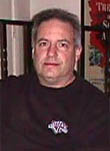
Posts: 1869
From: West Milford, NJ, USA
Registered: Jan 2001
|
 posted 12-14-2004 09:25 AM
posted 12-14-2004 09:25 AM




One thing I have learned over the years is not to form opinions based upon one news article. Yes, I too was outraged upon reading the above article at the callous indifference of various government officials, and the triumph of proceedure over justice. On the other hand, I am also aware that the article may have presented only selected facts. While certain investigative procedures used to convict him have since been discredited, we were not presented with all the evidence and testimony that the jury, current prosecutor, and governor saw. Was this discredited evidence a major part of the case, or just a minor part. From the article we do not know.
While I support capital punishment, I do not believe anyone should be executed on a case based solely upon circumstantial evidence, whether it be this guy, or Scott Peterson, or anyone.
| IP: Logged
|
|
|
|
|
|
|
|
|
|
|
|
All times are Central (GMT -6:00)
|
This topic comprises 2 pages: 1 2
|
Powered by Infopop Corporation
UBB.classicTM
6.3.1.2
The Film-Tech Forums are designed for various members related to the cinema industry to express their opinions, viewpoints and testimonials on various products, services and events based upon speculation, personal knowledge and factual information through use, therefore all views represented here allow no liability upon the publishers of this web site and the owners of said views assume no liability for any ill will resulting from these postings. The posts made here are for educational as well as entertainment purposes and as such anyone viewing this portion of the website must accept these views as statements of the author of that opinion
and agrees to release the authors from any and all liability.
|

 Home
Home
 Products
Products
 Store
Store
 Forum
Forum
 Warehouse
Warehouse
 Contact Us
Contact Us


 Topic Closed
Topic Closed


 Printer-friendly view of this topic
Printer-friendly view of this topic








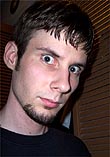
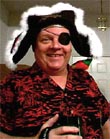
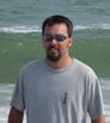
![[Eek!]](eek.gif)
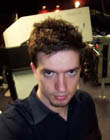
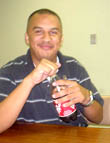


![[Frown]](frown.gif)
![[Wink]](wink.gif)



